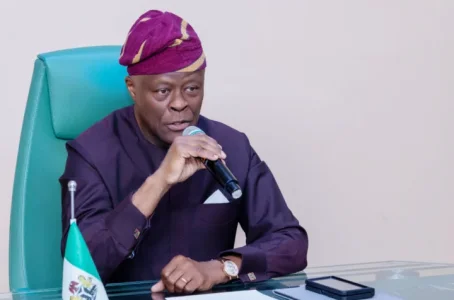
Nigeria's removal of the fuel subsidy by President Bola Tinubu sparked an immediate backlash, but the Director General of NIPPS, Ayo Omotayo, defends the decision, emphasizing long-term benefits despite short-term struggles. He calls for Nigerians to adjust their spending to help drive economic stability.
In a move that caught many Nigerians off guard, President Bola Tinubu's decision to remove the fuel subsidy at the time of his inauguration has triggered mixed reactions across the nation. The immediate impact was a sharp increase in fuel prices, straining many households already struggling with inflation. Despite the backlash, the Director General of the National Institute for Policy and Strategic Studies (NIPPS), Ayo Omotayo, defended the president's decision, stating that while the short-term effects may be harsh, the long-term benefits would outweigh the current sacrifices.
Omotayo emphasized that Nigeria’s heavy reliance on fuel subsidies had become unsustainable, draining national resources and contributing to the country's ballooning debt. He explained that for years, Nigeria had been subsidizing fuel not only for its citizens but also for neighboring countries like Burkina Faso and Sierra Leone, further straining its finances. According to Omotayo, the fuel subsidy removal was a timely and necessary step toward stabilizing Nigeria’s economy, and although the immediate consequences were difficult, sacrifices today would result in greater economic stability in the future.
The government has introduced palliative measures, such as a temporary minimum wage increase for low-income workers and more affordable gas-powered public transport options, to help cushion the effect of the subsidy removal. However, Omotayo stressed that Nigerians must adjust their spending habits as part of the economic reforms. While some critics view these changes as harsh, Omotayo believes that such tough decisions are crucial for the country’s long-term growth.
President Tinubu's stance on the subsidy removal was also supported by his administration, highlighting the need for difficult reforms to ensure a prosperous future, despite the current economic pain. The government insists that reform is vital for the country’s economic revival and that enduring these hardships will ultimately benefit Nigerians.





